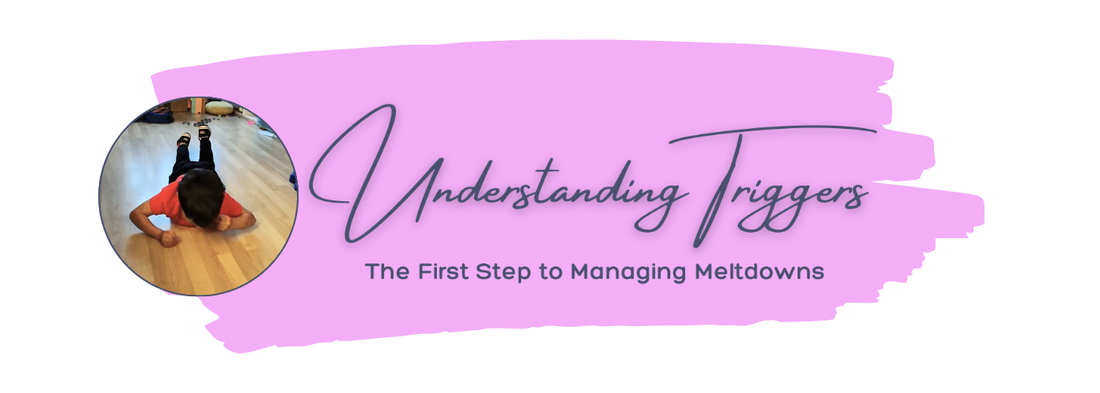
Understanding Triggers: The First Step to Managing Meltdowns
Here’s how our first week of the summer holidays went down:
I’d collect the kids from camp at 3:30pm, and by 4:30pm, Devan would be deep in meltdown mode - either because I wouldn’t let him have a fifth snack, or because I asked him not to throw away a perfectly good tissue, or because I told him to pick up his sister’s dress that he had flung on the floor.
All of those things really happened. And it was only week one.
At the time, I felt like I was constantly walking on eggshells. Like things were spiralling - and I couldn’t predict what would set him off next. But what I’ve come to realise (through many moments just like these) is that most meltdowns don’t just explode out of nowhere.
They build. Quietly. Subtly. Often invisibly. Until they don’t.
And those build-ups? Those are called triggers.
What Are Triggers?
A trigger is anything that overwhelms your child’s nervous system - often in a way that builds quietly before it explodes.
For neurodivergent children, triggers might include:
-
A sudden change in routine
-
Loud or unpredictable noises
-
Being hungry, tired, or overstimulated
-
Transitions (even small ones)
-
Feeling misunderstood or out of control
Some triggers are obvious. But most are hidden beneath the surface. You might not realise your child is starting to unravel until it’s too late. That’s because children - especially those with ADHD or autism - often aren’t able to communicate what’s going on inside until they’re already overwhelmed.
Why Noticing Triggers Matters
I won’t pretend that once I started noticing Devan’s triggers, everything suddenly got easier. The truth is, I’m still learning. Some days I can spot the signs a mile away - and other days, I’m caught completely off guard.
But becoming more aware of certain patterns has helped. It’s given me a bit more understanding, a bit more patience, and a few more tools to work with when things start to unravel.
That’s why I keep tracking. That’s why I still look for patterns. Because this isn’t about fixing my child. He’s not broken. It’s about working with him to understand what he needs, and learning together how to make overwhelming moments feel a little less overwhelming.
We’re figuring this out one step at a time. And every little insight makes a difference.
How to Start Spotting Triggers in Your Own Child
There’s no perfect formula, but here are a few things that helped me:
-
Notice patterns. Does your child often get upset before meals? After noisy outings? During transitions?
-
Look at the build-up. What happened in the hour before the meltdown? What did your child eat, do, hear, or feel?
-
Talk it through when calm. If your child is able to reflect, ask questions like “What made your body feel yucky?” or “Did something happen that upset you?”
Sometimes I keep a soft mental log, but in tougher seasons, I write things down. That’s actually why I created the Meltdown Tracker - because I wanted a tool to help me connect the dots when everything felt like chaos.
Even just jotting down when and where things happened helped me see things I’d never noticed before.
What Happens Next
Once you’ve identified some of your child’s triggers, you can start gently adapting your environment or your approach.
That might look like:
-
Giving a 5-minute warning before leaving the park
-
Carrying snacks at all times (trust me!)
-
Preparing your child for upcoming changes
-
Using sensory tools when you know something might be overwhelming
This doesn’t mean every moment becomes easy, but it does mean we walk in more prepared, more empathetic, and more empowered.
You’re not trying to fix your child. You’re trying to understand them. And that makes all the difference.
There’s no perfect way to parent through meltdowns - and we’ll never be able to control every trigger. But when we start recognising the patterns, we can meet our children where they are, with calm and compassion.
You don’t need to solve everything overnight. Just start by noticing. That first step can be life-changing.
